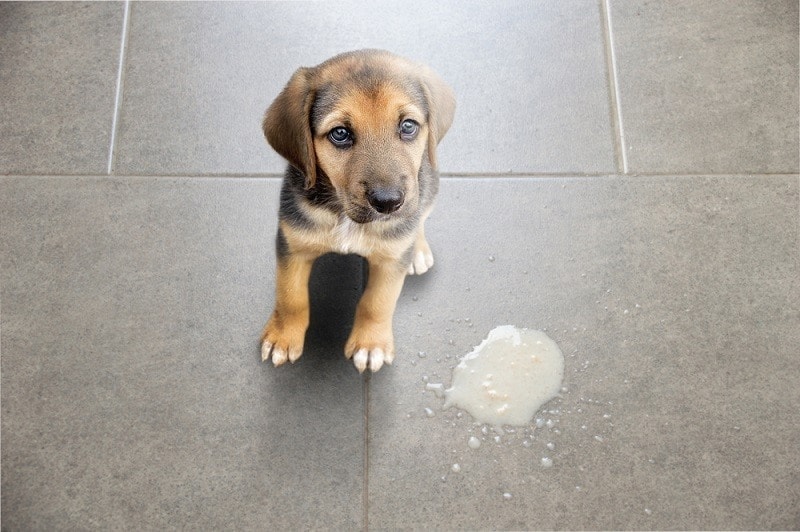Peonies are known for their beautiful pink, white, and yellow leaves and their wonderful fragrance. However, as a dog owner, it’s imperative to know about the various types of plants and foods that can be potentially dangerous to your pet’s health.
So, do peonies fall into this category? We’ve done our research on these plants and we’ll discuss the answer in this post.
Are Peonies Poisonous to Dogs?
Yes, peonies can be rather toxic and potentially fatal to your dog. They contain a chemical called paeonol. If peonies are consumed in large amounts, they can cause serious digestive issues including diarrhea, vomiting, and nausea. A small amount may only cause mild irritation, depending on the size and breed of your dog, but if they’ve eaten a substantial amount it can affect their health.
Symptoms Of Peony Poisoning in Dogs
Peonies are toxic to humans, dogs, and other animals. If your dog ingests this plant, it’s unlikely to cause death, but it should be avoided. If your dog accidentally ingests peonies (in any amount) be sure to look out for the following signs of poisoning:
- Sudden low energy
- Vomiting
- Nausea
- Change in mood or constant barking or whimpering
- Diarrhea
If these symptoms aren’t managed and treated promptly by a professional, they can become worse as time passes. And if this happens, it’s important that you take your dog to the nearest vet hospital as soon as possible. The vet may pump your dog’s stomach or prescribe medicine to help alleviate symptoms.

Other Foods That Are Toxic To Dogs
If you’re wondering if it’s ok to feed your pup or new rescue dog certain foods, here’s a list to help you. Remember that although dogs will sniff and eat almost anything you waive in front of their noses, it doesn’t mean that it’ll be healthy to feed it to them.
They can be especially susceptible to gastrointestinal issues if fed certain foods or ingredients, with some breeds being more sensitive to others. Here are a few things that you may want to avoid giving them.
1. Dairy Products
Dairy products such as milk, yogurt, and cheese can cause dogs to suffer from digestive problems, even though they have many calcium-boosting properties. Many dairy products are a major contributor to lactose intolerance among canines–just like with humans.
Note that some dogs may be able to handle dairy products like plain yogurt or cheese. However, this is not true for all dogs. Many dogs don’t have enough lactase enzymes in their bodies to efficiently break down the lactose found within dairy products, which can result in bloating, gas, and upset stomach.
2. Raw Eggs
Eggs are a good source of protein. If cooked properly, they can be a great help to your dog’s coat. However, raw eggs can be toxic to your dog. Though you may see plenty of dog owners feeding their dogs raw eggs, always check with your vet first.
The reason is that raw eggs can cause a biotin deficiency. There is an enzyme in eggs that restricts biotin absorption, one of a few important B vitamins. Salmonella bacteria can also be found in eggs, which can make them extremely poisonous for dogs.
3. Foods High In Sugar And Fat
Sugars, in addition to large amounts of fat or protein, can also cause digestive problems and liver dysfunction in dogs. Many seemingly harmless human foods (such as fruits, nuts, and grains) can be unhealthy for certain breeds, especially in large amounts.
4. Garlic and Onions
These particular foods are high in disulfides and sulfoxides, which can cause anemia and damage red blood cells. The most toxic of both, onions, should not be given to dogs. This includes all parts and forms such as the skin, onion powder, or flakes. Garlic products should also be avoided.
5. Caffeinated Products
Chocolate should not be given to dogs under any circumstances, dark chocolate especially. Most vets will tell you to make sure to store all chocolate snacks and foods up high where your dog can’t access them. Why?
Because all chocolates contain theobromine, which is similar to caffeine. Dogs simply aren’t able to metabolize theobromine, which can have a negative impact on their digestive system.
Conclusion
If you have peonies in your garden or your front lawn, be sure to watch your dog when it’s around them. Their colors and fragrance make them inviting to K9s, but they can be harmful to their health.
And if your furry friend does ingest this plant or its flowers, be sure to monitor its behavior afterward for signs of poisoning and take it to the vet if necessary.
Featured Image Credit: Pixabay
















